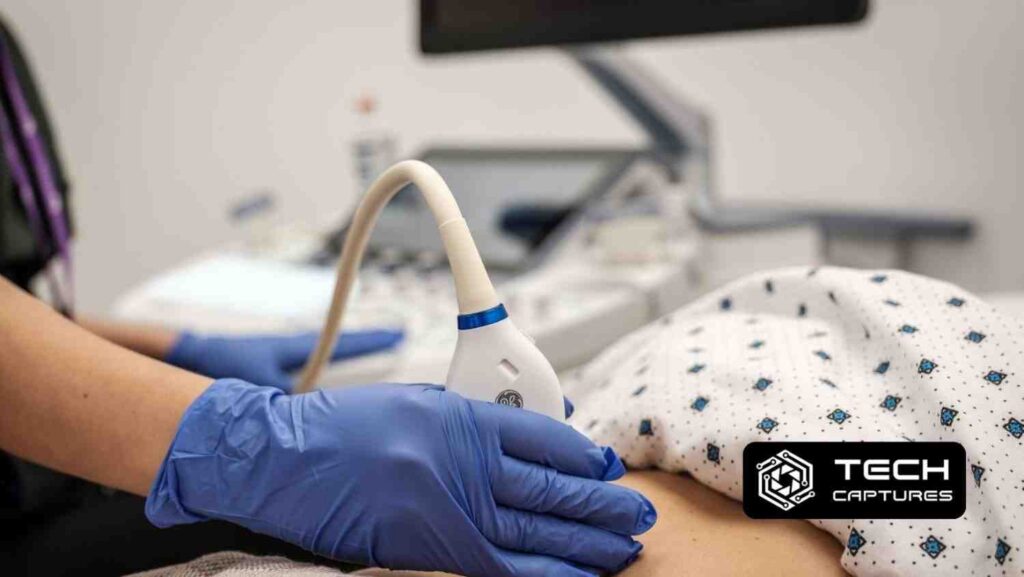If you’ve ever wondered about the earnings of ultrasound technicians, you’re not alone. The demand for ultrasound techs is on the rise, but just how much does an ultrasound tech make? Let’s dive into the details to uncover the intricacies of their salary.
Table of Contents
Understanding the Numbers: Average Hourly Pay
As of November 26, 2023, the average hourly pay for ultrasound techs in the United States stands at $47.25. This figure serves as a compass, guiding us through the landscape of ultrasound job salaries. But what factors contribute to this average, and how does it fluctuate?
Highs and Lows of How Much Does An Ultrasound Tech Make an Hour
ZipRecruiter provides a fascinating insight into the extremes of ultrasound tech wages. The hourly pay scale spans from a remarkable high of $74.76 to a more modest low of $17.79. This diversity in earnings indicates a spectrum of possibilities within the ultrasound jobs category.
Navigating the Range: Opportunity Awaits
Delving deeper, the majority of ultrasound tech wages fall between $30.53 (25th percentile) and $61.06 (75th percentile) across the United States. This suggests a wide range of opportunities for advancement and increased pay. Skill level, location, and years of experience all play pivotal roles in determining where an ultrasound tech falls on this spectrum.
Job Market Insights: The Pulse of Hiring Activity
Zooming out to observe the job market, recent postings on ZipRecruiter reveal interesting dynamics. In places like Hyderābād, PK, and across the entire state, the ultrasound job market isn’t buzzing with activity. Only a few companies are currently hiring. Despite this, those currently employed in the ultrasound category in your area are earning an average of $47 per hour, aligning with the national average.
State Standings: Where Does Your State Rank?
Curious about how your state stacks up in terms of ultrasound job salaries? The data places your state on the map, and the United States ranks number 1 out of 50 states nationwide for ultrasound job salaries. This ranking sheds light on the varying landscapes of ultrasound employment across the country.
The Formula: Factors Influencing Ultrasound Tech Salaries

To estimate the most accurate hourly salary range for ultrasound jobs, ZipRecruiter continuously scans its extensive database of active job postings throughout America. This formula takes into account location, skill levels, and years of experience, offering a comprehensive view of the earning potential in the field.
How much does an ultrasound tech make an Hour? In short, the world of ultrasound tech salaries is a dynamic landscape shaped by factors like location, experience, and skill level. As you navigate this terrain, remember that the average is just a starting point – opportunities for growth and advancement abound. Stay informed, stay curious, and let the numbers guide your journey in the fascinating realm of ultrasound technology.
Next Stops: How Long Does it Take to Become an Ultrasound Tech?
Now that we’ve explored the financial aspects, the journey to becoming an ultrasound tech is the next step. How long does it take to embark on this career path, and what steps are involved? Join us in the next section as we unravel the timeline to becoming an ultrasound tech.
1. Educational Foundations: The Beginning
Your journey kicks off with education. Most aspiring ultrasound techs pursue an associate’s or bachelor’s degree in diagnostic medical sonography. These programs typically cover anatomy, physiology, and ultrasound physics. The duration varies, with associate’s degrees taking around 2 years and bachelor’s degrees extending to 4 years.
2. Clinical Training: Shaping Practical Skills
Beyond the classroom, hands-on experience is paramount. Clinical training immerses you in real-world scenarios, allowing you to apply theoretical knowledge. This phase can take anywhere from 6 months to a year, depending on your program.
3. Specialization Choices: Tailoring Your Path
As you progress, you’ll encounter various ultrasound specialties, such as obstetrics, echocardiography, or abdominal sonography. Choosing a specialization adds a layer of expertise to your skill set. The time invested in specialization can range from several months to a year.
4. Certification: Sealing Your Expertise
Upon completing your education and training, certification is the final step. While it’s not mandatory in all states, obtaining certification enhances your employability. The American Registry for Diagnostic Medical Sonography (ARDMS) and Cardiovascular Credentialing International (CCI) are two recognized certifying bodies.
5. Continuing Education: Staying Current
The journey continues after certification. As technology evolves, so should your skills. Engaging in continuing education ensures you stay abreast of advancements in ultrasound technology. Workshops, seminars, and online courses contribute to your ongoing professional development.
In essence, the timeline to becoming an ultrasound tech involves a multi-step process. From educational foundations to specialization and certification, each phase contributes to shaping you into a proficient and sought-after professional in the field of ultrasound technology.
Navigating Career Crossroads: Sonography vs. Ultrasound Tech Salary

As you progress in your career, you may encounter the choice between general ultrasound technology and specialized sonography. While both paths offer rewarding careers, understanding the salary dynamics can influence your decision.
1. General Ultrasound Tech Salary Overview
General ultrasound techs operate across various areas, conducting scans on different parts of the body. Their average salary aligns with the overall ultrasound tech pay scale, providing a solid foundation for those who enjoy the diversity of their work.
2. Specialized Sonography: A Deeper Dive
On the other hand, specialized sonographers focus on specific areas like the heart, abdomen, or vascular system. This targeted expertise often commands higher salaries due to the specialized skills and knowledge required.
Factors Influencing Salary: The Inside Story
Factors such as experience, location, and the demand for specific specialties play a role in determining salaries. Seasoned ultrasound techs with years of experience and expertise in high-demand specialties may find themselves at the upper echelons of the pay scale.
How Much Does an Ultrasound Tech Make an Hour & All: Conclusion
In conclusion, the choice between general ultrasound technology and specialized sonography involves weighing the breadth of your work against the depth of your expertise. Both paths offer fulfilling careers, and understanding the salary landscape helps you make an informed decision as you navigate your career crossroads.

